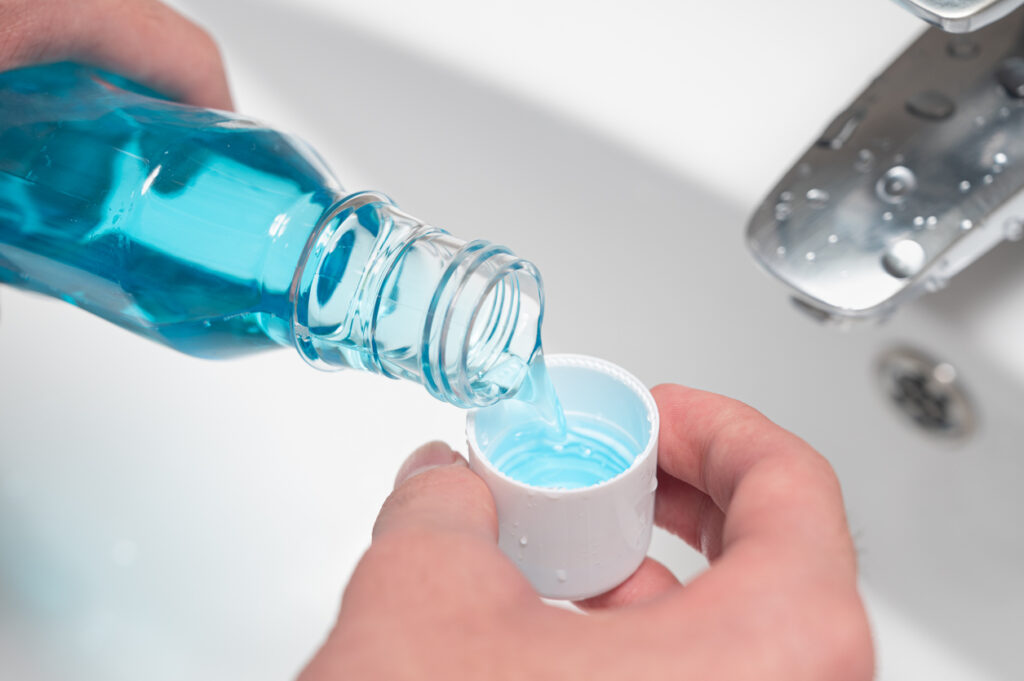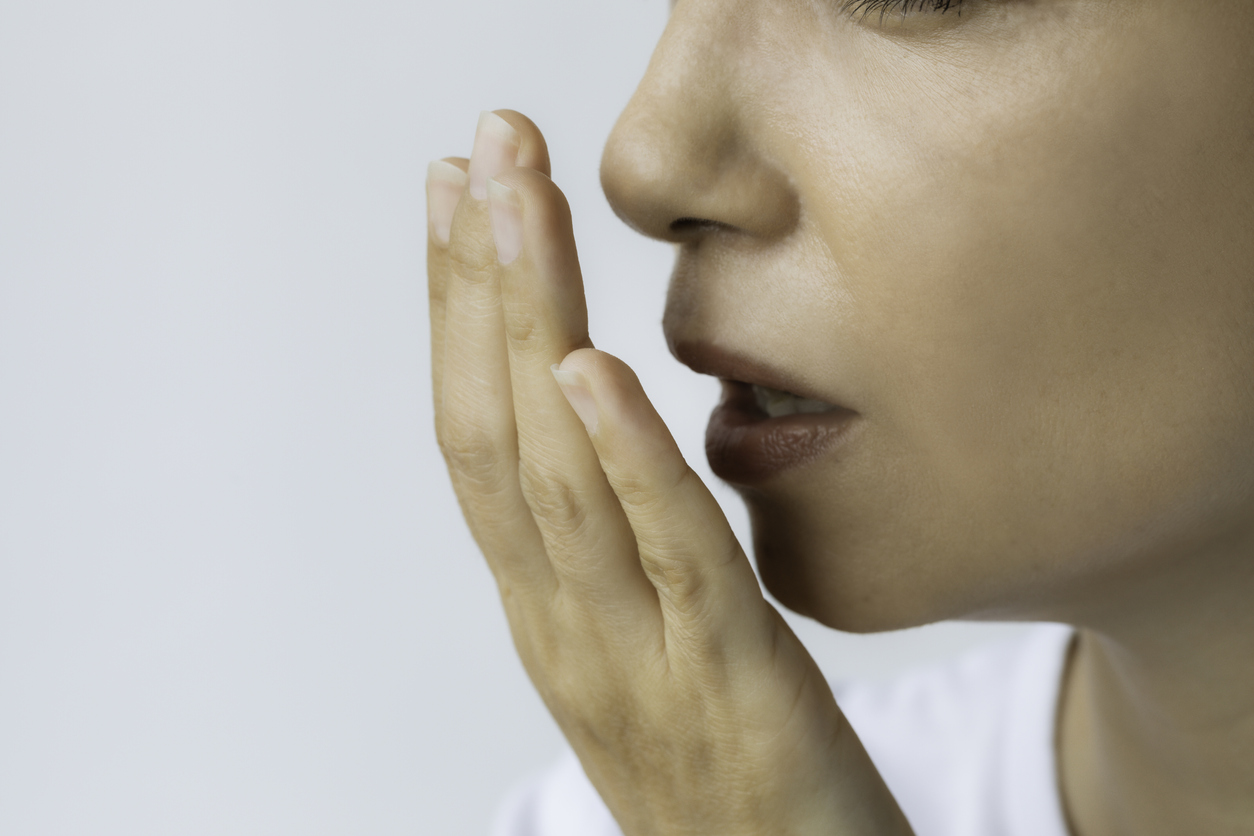Bad breath, halitosis, is common affecting millions of people worldwide. It can cause people to feel uncomfortable (the sufferer and those around them) as well as indicate other underlying issues. Understanding the causes of bad breath and knowing the treatment options can help to overcome this embarrassing and uncomfortable issue.
Causes of Bad Breath
Poor Oral Hygiene: One of the primary causes of bad breath is inadequate oral hygiene. When we don’t brush and floss regularly, food particles can accumulate between teeth, providing a breeding ground for bacteria that produce foul-smelling sulfur compounds – bad breath.
Oral Infections: Bacterial infections in the mouth, such as gum disease (gingivitis and periodontitis), can contribute to bad breath.
Dry Mouth (Xerostomia): Saliva plays a vital role in rinsing away food particles and neutralizing acids in the mouth. Dry mouth can occur due to certain medications, salivary gland problems, or breathing through the mouth, leading to bad breath.
Food Choices: Strong-smelling foods like garlic, onions, and spices can linger in the mouth and be absorbed into the bloodstream, causing bad breath for several hours after consumption.
Tobacco Use: Smoking or using tobacco products can dry out the mouth and leave a lingering, unpleasant odor on the breath.
Medical Conditions: Certain medical conditions such as respiratory infections, sinus problems, acid reflux (GERD), diabetes, and liver or kidney diseases can also cause bad breath.
Treatment Options & Prevention
Good Oral Hygiene: Establishing a consistent oral care routine is the first line of defense against bad breath. Brush your teeth at least twice a day, floss daily, and use an antibacterial alcohol-free mouthwash to remove food debris and bacteria from your mouth.
Tongue Cleaning: The tongue can harbor a significant amount of bacteria responsible for bad breath. Gently brush or use a tongue scraper to clean the surface of your tongue regularly.
Stay Hydrated: Drinking plenty of water helps combat dry mouth and promotes saliva production, which can reduce the likelihood of halitosis. It also can help wash away sugars after eating or drinking something other than water.
Avoid Strong-Smelling Foods: While it’s difficult to eliminate certain foods from your diet, being mindful of their impact on your breath can help. Opt for sugar-free mints or gum after eating strong-smelling foods to mask the odor temporarily.
Quit Smoking: If you smoke or use tobacco products, quitting can greatly improve your breath and overall health.
Regular Dental Checkups: Visit your dentist at least twice a year for professional cleanings (or as recommended) and oral exams. This will help address any underlying dental issues contributing to bad breath.
Address Medical Conditions: If you suspect that an underlying medical condition is causing your bad breath, consult a healthcare professional for proper diagnosis and treatment.
Mouthwashes: Some mouthwashes contain antimicrobial agents that can help reduce bacteria in the mouth and improve breath odor. However, long-term use of alcohol-based mouthwashes can dry out the mouth, so opt for alcohol-free alternatives.

Say Bye Bye to Bad Breath
Bad breath can be embarrassing and uncomfortable, but it is a common problem with multiple causes. Fortunately, in most cases, it can be resolved or significantly improved through better oral hygiene practices, tongue cleaning, staying hydrated, and avoiding tobacco use.
Changed your habits, but still experiencing bad breath? It’s time to see your dentist and doctor to determine if there are underlying conditions causing it.
Take proactive steps to combat bad breath and regain your confidence and enjoy fresh, pleasant breath once again.




